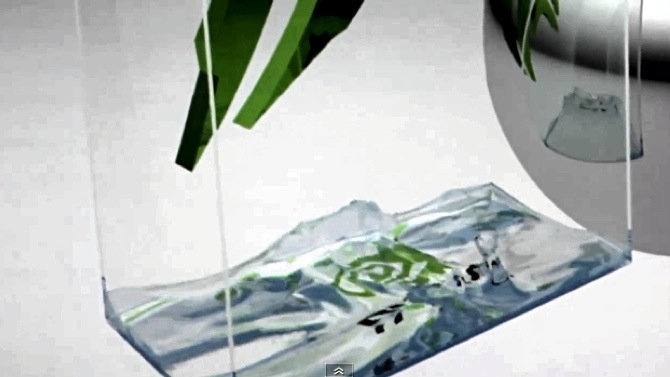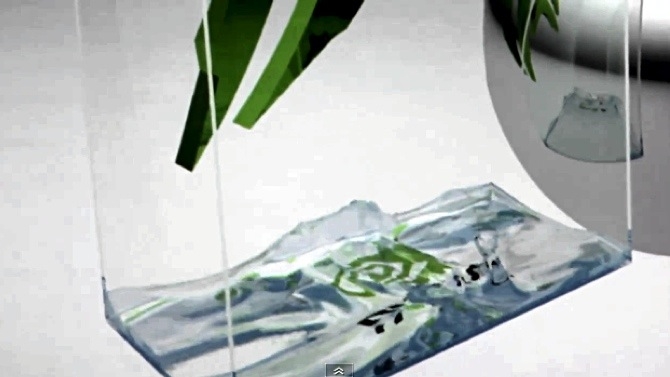
 Real-time ray tracing and fluid dynamics
Real-time ray tracing and fluid dynamics
Ray Tracing has always produced the most spectacular results of all CGI techniques. We've all seen those images of chrome balls on chess-boards, with every reflection - even between multiple balls - faithfully rendered. And "rendered" is the important word here, because, until now, real-time ray tracing on anything other than a supercomputer has been impossible.
In the early days of CGI, a single ray traced image could take days, or even weeks, to calculate.
Why does ray tracing demand so much more computer power than any other CGI technique? Simply because the spectacular images are the result of computing the pathway of every single point of light, and the effect of this from the user's viewpoint. All of this adds up to a massive number of calculations for every frame of video; quite impossible in real-time.
Until now.
Nvidia's claims that their new Kepler platform is "the world's fastest, most efficient HPC architecture" where "HPC stands for High Performance Computing. Anything to do with graphics processing has the potential to be complicated, and Kepler is no exception, but the results are obvious: below is a video showing not only real-time ray-tracing, but real-time fluid dynamics as well. These two types of CGI techniques are challenging by themselves, but here they are, interacting in real-time.
So, what does this all mean?
Quite obviously for the games industry, this means more realism and more believable gaming environments. For movies, it means speed and better-looking CGI films. If there is a pathway to genuine CGI photo-realism, this is probably it.
(Sorry for the rather poor video - this is the only example we could find. If we can get the original presentation from Nvidia we will post it later. Note that the fluid dynamics start at 2:07)
Tags: Technology


Comments